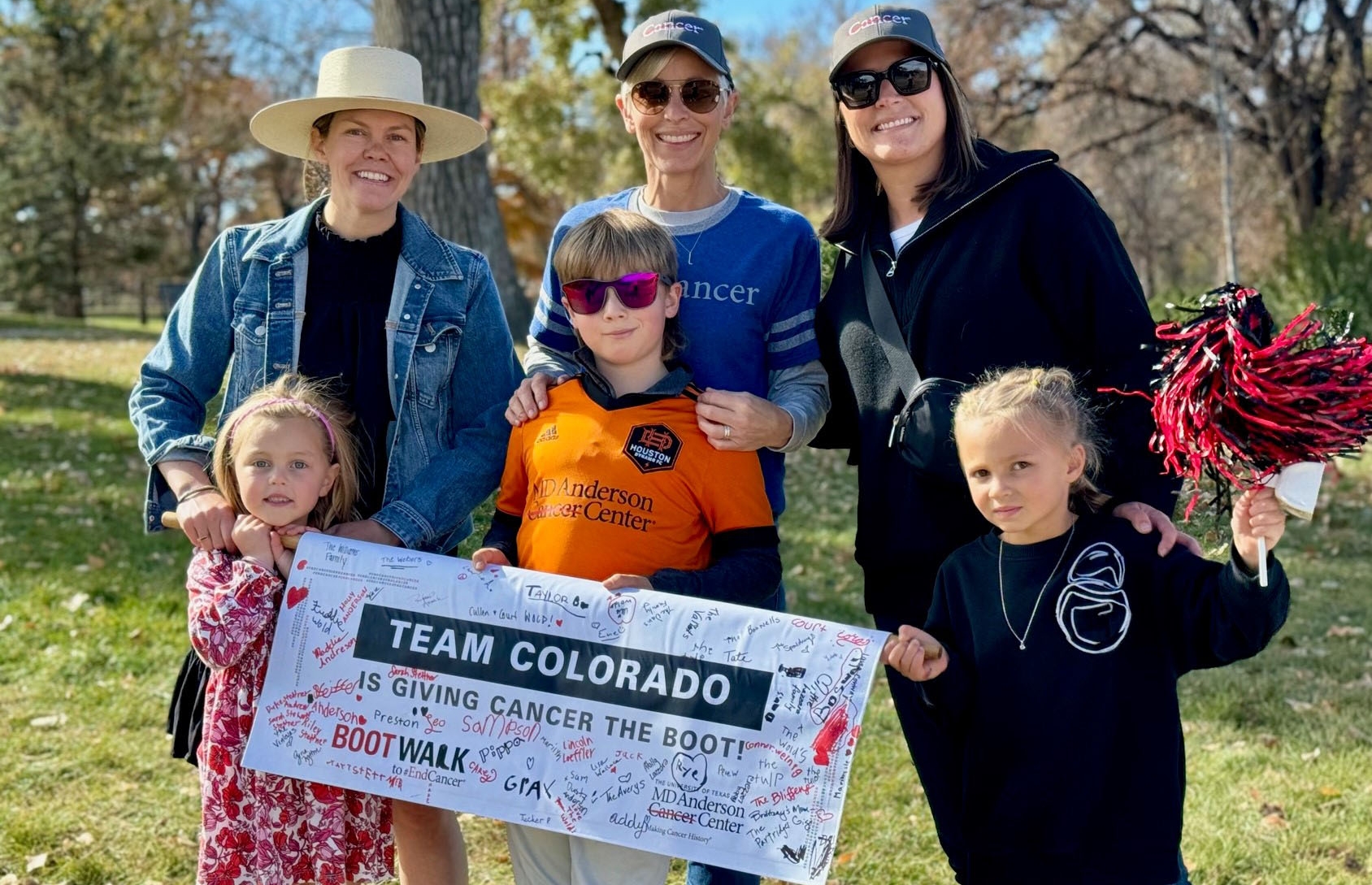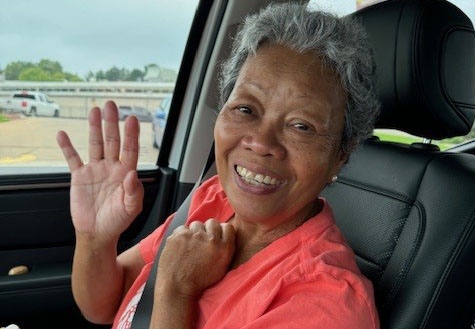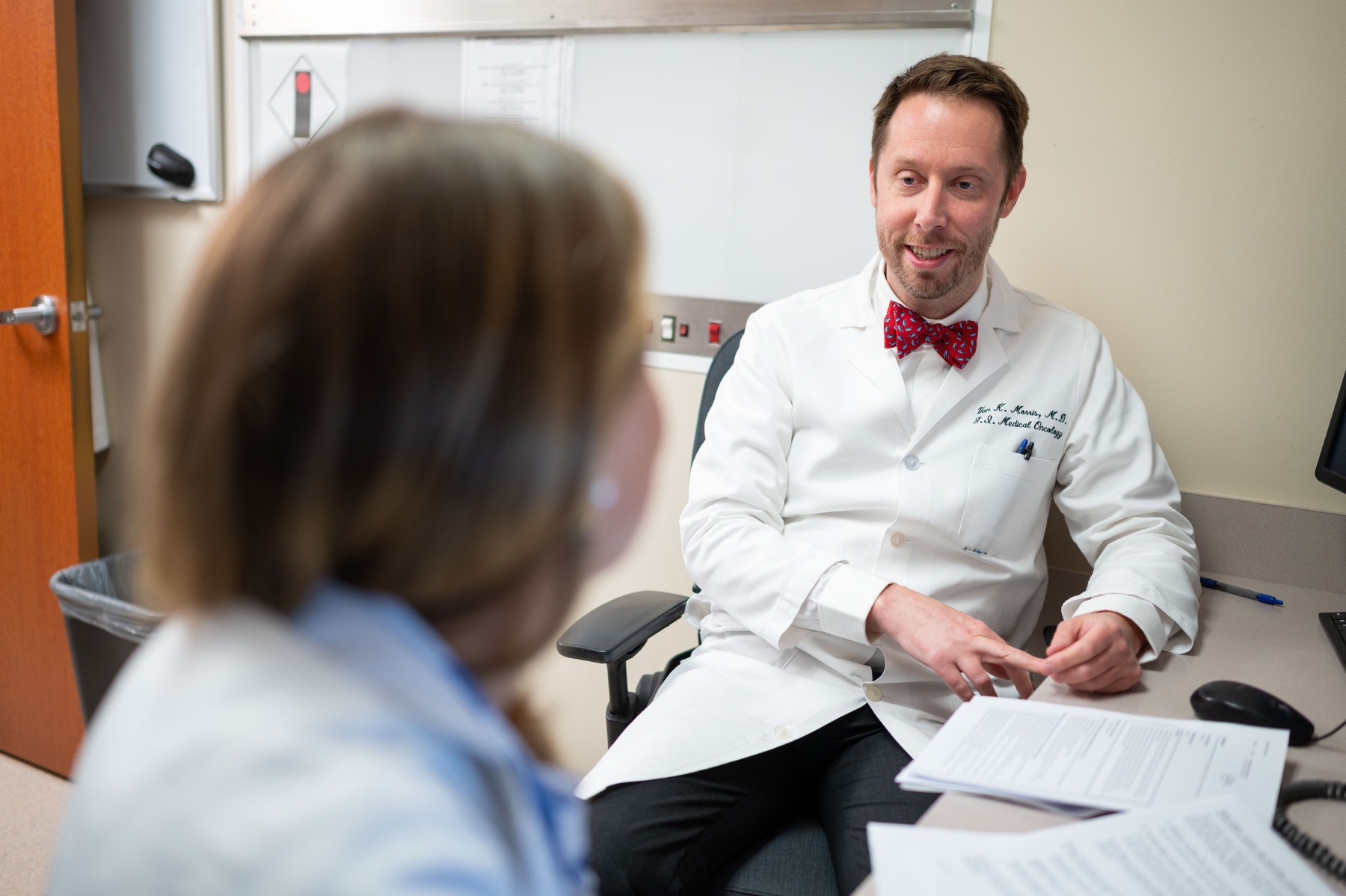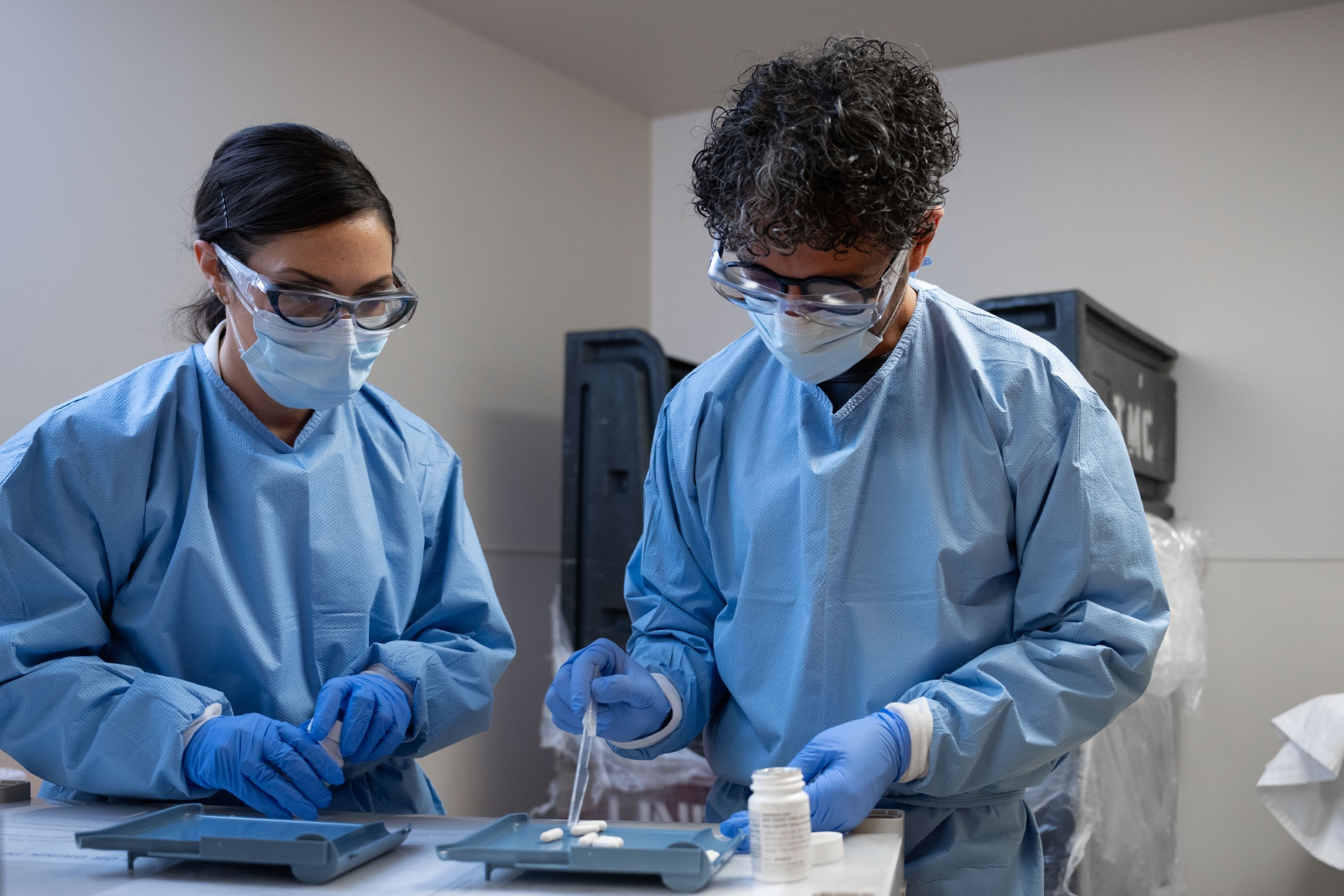Immunotherapy offers melanoma patient hope
- Diseases
- Acoustic Neuroma (14)
- Adrenal Gland Tumor (24)
- Anal Cancer (66)
- Anemia (2)
- Appendix Cancer (16)
- Bile Duct Cancer (28)
- Bladder Cancer (68)
- Brain Metastases (28)
- Brain Tumor (228)
- Breast Cancer (716)
- Breast Implant-Associated Anaplastic Large Cell Lymphoma (2)
- Cancer of Unknown Primary (4)
- Carcinoid Tumor (8)
- Cervical Cancer (154)
- Colon Cancer (164)
- Colorectal Cancer (110)
- Endocrine Tumor (4)
- Esophageal Cancer (42)
- Eye Cancer (36)
- Fallopian Tube Cancer (6)
- Germ Cell Tumor (4)
- Gestational Trophoblastic Disease (2)
- Head and Neck Cancer (6)
- Kidney Cancer (124)
- Leukemia (344)
- Liver Cancer (50)
- Lung Cancer (288)
- Lymphoma (284)
- Mesothelioma (14)
- Metastasis (30)
- Multiple Myeloma (98)
- Myelodysplastic Syndrome (60)
- Myeloproliferative Neoplasm (4)
- Neuroendocrine Tumors (16)
- Oral Cancer (100)
- Ovarian Cancer (170)
- Pancreatic Cancer (166)
- Parathyroid Disease (2)
- Penile Cancer (14)
- Pituitary Tumor (6)
- Prostate Cancer (144)
- Rectal Cancer (58)
- Renal Medullary Carcinoma (6)
- Salivary Gland Cancer (14)
- Sarcoma (236)
- Skin Cancer (294)
- Skull Base Tumors (56)
- Spinal Tumor (12)
- Stomach Cancer (60)
- Testicular Cancer (28)
- Throat Cancer (90)
- Thymoma (6)
- Thyroid Cancer (98)
- Tonsil Cancer (30)
- Uterine Cancer (78)
- Vaginal Cancer (14)
- Vulvar Cancer (18)
- Cancer Topic
- Adolescent and Young Adult Cancer Issues (20)
- Advance Care Planning (10)
- Biostatistics (2)
- Blood Donation (18)
- Bone Health (8)
- COVID-19 (362)
- Cancer Recurrence (120)
- Childhood Cancer Issues (120)
- Clinical Trials (622)
- Complementary Integrative Medicine (24)
- Cytogenetics (2)
- DNA Methylation (4)
- Diagnosis (226)
- Epigenetics (6)
- Fertility (62)
- Follow-up Guidelines (2)
- Health Disparities (14)
- Hereditary Cancer Syndromes (122)
- Immunology (18)
- Li-Fraumeni Syndrome (8)
- Mental Health (118)
- Molecular Diagnostics (8)
- Pain Management (64)
- Palliative Care (8)
- Pathology (10)
- Physical Therapy (18)
- Pregnancy (18)
- Prevention (888)
- Research (388)
- Second Opinion (74)
- Sexuality (16)
- Side Effects (602)
- Sleep Disorders (10)
- Stem Cell Transplantation Cellular Therapy (216)
- Support (404)
- Survivorship (322)
- Symptoms (186)
- Treatment (1770)
Confronting ocular melanoma
3 minute read | Published March 02, 2016
Medically Reviewed | Last reviewed by an MD Anderson Cancer Center medical professional on March 02, 2016
Some 23 years ago, I was 19 and getting ready to start college at Florida State University. But after experiencing blurry vision that could not be corrected with glasses or contacts, I was diagnosed with ocular melanoma, a very rare cancer in the eye. With my whole life ahead of me, I was determined to beat it. After treatment, which involved radiation and the loss of sight in my right eye, I got a clean bill of health -- just in time to buy my course books and head to college.
I closed that door and never looked back. I became a speech pathologist and an opera singer, got married and had two beautiful children. We live in Jacksonville, Florida. I’ve lived a healthy and happy life, never forgetting how precious life is. I sang for my church for years and performed in many venues around Florida.
I also was running about two or three marathons a year and competed in numerous other competitive races, including an ultra-marathon, two half-IRONMAN triathlons and countless 5K and 10K races -- after singing the national anthem, of course. After finishing the Boston Marathon last April, I was on top of the world. Next up: an IRONMAN triathlon.
My ocular melanoma recurrence
A routine doctor’s visit in May 2015 turned my life upside down. After 23 years of being cancer-free, I learned that the melanoma had spread to my liver. I was classified as stage IV. Whereas I’d felt that I could conquer the world at 19, I now felt different. As a wife and a mother, I had much more to lose. Being in health care, I knew that this was bad. Google searches didn’t help.
I was overwhelmed by the clock ticking on my life. I freaked out. I explored local treatment options, which sounded invasive and scary. My sister, Rebecca, urged me to get a second opinion at MD Anderson in Houston. She and my husband did research for me while I was crippled with fear of the unknown.
I made the trip to Houston. After only 20 minutes with Sapna Patel, M.D., and her team, I knew I had to be treated here. I’ve been on an immunotherapy clinical trial since August, with a combination infusion of ipilimumab and nivolumab every three weeks. I’m now down to just nivolumab once every two weeks.
After six months, here’s what I’ve learned:
- Volume matters. With the number of cases that come through MD Anderson, my doctors have experience treating rare cancers like mine and are able to come up with personalized treatments that worked for me.
- Family and friends matter. They often accompany me on my bimonthly visits to MD Anderson. It helps to have someone beside me asking questions and taking notes. Back home they make meals, run with me when I’m able, and listen when I need to vent. Investing in my friendships throughout the years has definitely paid off.
- Happiness matters. I bought yellow note cards that say “Cancer Sucks,” as well as a yellow purse. (My favorite color is yellow.) These small things made me hopeful.
- Setting goals matters. I made a deal with my husband that when I beat cancer, we’re taking the kids to Paris and I'm running a marathon somewhere fabulous. In the meantime, my husband and children have met my medical team and visited my aunt and uncle’s horse farm, which is about 90 minutes outside Houston. Having a local support system has been amazing.
I’m delighted to report that my tumors are shrinking, and my liver enzymes are back to normal. Dr. Patel calls me a “responder,” which is a much better label than “stage IV.”
My research nurse, Maria Jung, says she's going to cheer me on at my next marathon. I’m still in treatment, but I’m more hopeful than ever that I’ll make it to Paris and have Maria there cheering me on at my next marathon.
Related Cancerwise Stories

I'm still in treatment, but I'm more hopeful than ever.
Britta Fortson
Survivor






